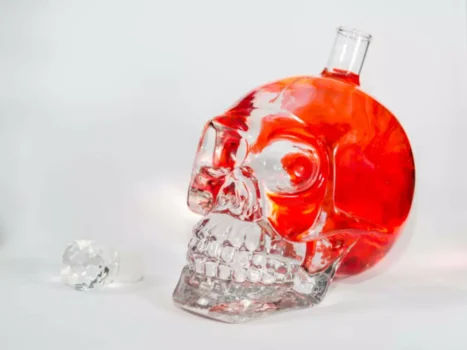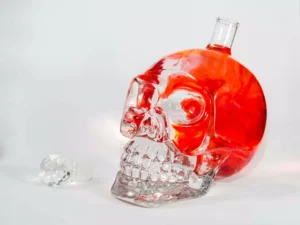Alcohol Rehabilitation Programs: Uses, Benefits, and Costs

In this type of setting, you can readily have access to medical and psychiatric services. Intensive inpatient services and residential rehab programs involve overnight stays in specialized facilities. They allow you to focus on recovery without having to balance everyday life stressors, such as work or family commitments.
Staying Social When You Quit Drinking
The cost of inpatient alcohol rehab depends on someone’s treatment-related needs, insurance coverage, the facility’s amenities, the individual’s needs, and potentially other variables. AAC accepts most major health insurance providers, such as Kaiser Permanente, Anthem Blue Cross, and Aetna to name just a few. Insurance may significantly reduce (if not completely eliminate) the costs for rehabilitation. Many alcohol rehabs treat people with co-occurring mental health conditions or dual diagnoses such as anxiety and depression.

Underage Drinking

This type of outpatient care is ideal for those with milder addictions or those transitioning from inpatient treatment. To assist those on this path, this guide provides a comprehensive overview of alcohol rehab. It explores different treatment options and offers support for those on their recovery journey. Understanding the available resources and approaches can make a significant difference in overcoming alcohol addiction. There are various factors likely to influence someone’s ideal rehab choice. For example, gender, age, insurance coverage, facility location, co-occurring medical conditions, medical/psychological assessment, and other individual needs could factor into the decision.
- An essential aspect of therapy is learning to identify and cope with triggers, stressors, and high-risk situations that may lead to relapse.
- AAC is a nationwide provider of addiction treatment facilities and is dedicated to making recovery accessible to every person in need.
- If you know someone familiar with a specific treatment, it may be helpful to ask them about their experience.
- Some people require longer stays of 6–12 months at facilities known as therapeutic communities (TCs), which provide structured programming and offer assistance with reintegration into their community.
- Inpatient rehab requires you to live at the alcohol rehab for the duration of your program.
- An outpatient treatment program may be a more flexible option or act as a “step down” from inpatient programming.
Inpatient Alcohol Detox
Aftercare also allows individuals to continue working on issues surrounding their addiction and develop healthy coping mechanisms. Should your risk of severe or complicated alcohol withdrawal be significant at the point of your initial assessment, your first stage of inpatient alcohol treatment may include a supervised medical detox. Behavioral treatments focus on modifying unhealthy drinking behaviors through behavioral therapies led by licensed counselors or therapists. Mutual-support group participation could entail attendance of a 12-step meeting such as Alcoholics Anonymous (AA). In Alcoholics Anonymous meetings (and other 12-step meetings) members of this confidential group can receive support from their peers who are also in recovery from an alcohol use disorder or other addictions. For example, if you believe you have plenty of social support at home and a safe environment to practice addiction coping strategies, you may decide that an outpatient program is best.
- The therapy focuses on identifying the pros and cons of seeking treatment, forming a plan for making changes in one’s drinking, building confidence, and developing the skills needed to stick to the plan.
- It significantly impacts healthcare, workplace productivity, and criminal proceedings, resulting in an annual loss of $249 billion to the US economy.
- The NIAAA’s Alcohol Treatment Navigator says that alcohol use disorder is present if you answer “yes” to two or more of the questions above.
- Often this occurs during adolescence and involves trying different types of alcoholic drinks.
- It explores different treatment options and offers support for those on their recovery journey.
Preparing for Alcohol Rehab
Experiencing at least two of these patterns within the past 12 months may indicate the presence of AUD (American Addiction Centers). However, it is essential to consult a healthcare professional for a proper diagnosis and tailored treatment recommendations. Being aware of these signs can help you understand when it’s time to seek help for alcoholism. For more information about treatment options, see NIAAA’s Treatment for Alcohol Problems booklet.

Care is offered at different levels of intensity in a variety of settings. Many outpatient options allow people to maintain their regular routines and their privacy, too, if desired. After successful withdrawal management, or if you completed your medical detox from alcohol in another facility, you will transition into the remaining portion of your inpatient rehab care. If you have health insurance, call the number on the back of your card to ask about your mental health and substance abuse coverage. Find out what your out-of-pocket costs will be, including deductible and co-payment amounts. Use the following questions to further narrow down your search for the right alcohol treatment program.

Depending on your customized treatment plan, your facility’s range of offerings, and your needs, you may attend 12-step meetings or participate in more experiential Overview Answer House therapies like music therapy, art therapy, or equine therapy. Another major factor that will affect the cost is your health insurance policy. In the United States, Marketplace (Affordable Care Act) plans are required to cover mental health and substance abuse services as essential health benefits.
- For males, heavy drinking constitutes more than four drinks daily or more than 14 weekly.
- If you are seeking help for a teen, check out these recommended adolescent treatment resources.
- Help is available in both English and Spanish, and representatives can match you with services and rehabilitation programs.
- Alcohol rehab is a crucial component of the recovery process, offering various treatment options tailored to an individual’s needs.
- Many people with alcohol problems and their family members find that participating in support groups is an essential part of coping with the disease, preventing or dealing with relapses, and staying sober.
Finding an alcohol rehab program in the U.S.

However, people with more serious AUD can benefit from medical alcohol rehabilitation. Studies have shown that those who start drinking before age 15 are at a higher risk for developing AUD later in life. This risk is especially true for those with a family history of alcoholism or mental health issues.


















